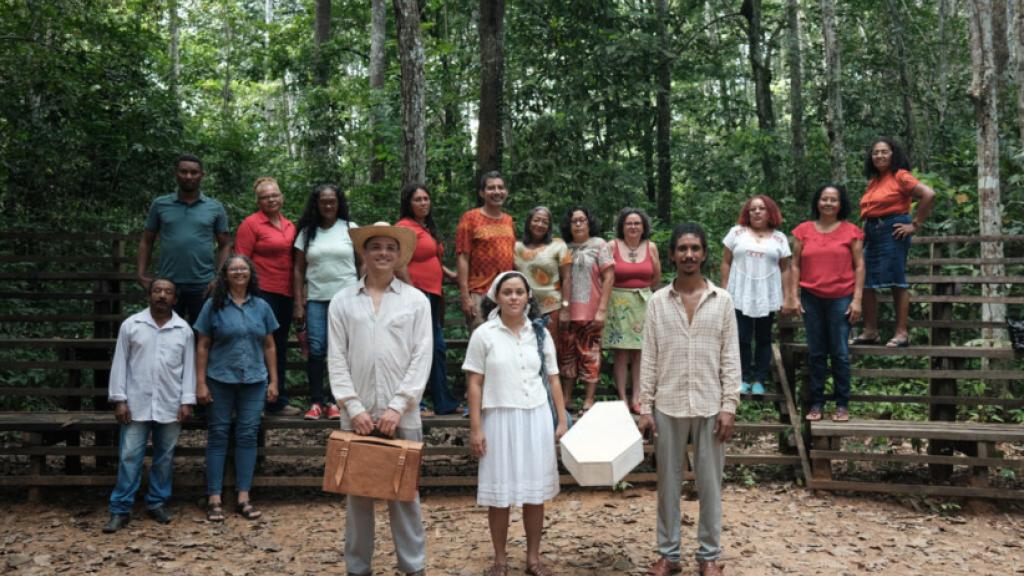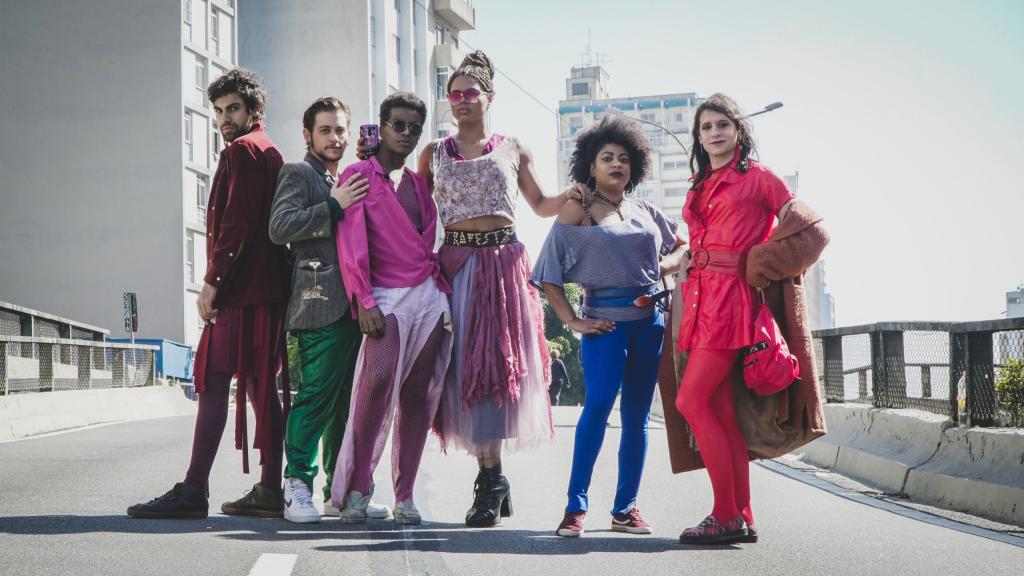- Program
- /
- No terra nullius
- /
- Como podemos fazer isso juntos?
Como podemos fazer isso juntos?
Fala da Terra (Voice of the Earth)
Benjamin de Burca and Bárbara Wagner, Brazil 2022 19 min. Portuguese with English subtitles, DCP
Para Onde Voam as Feiticeiras (Southern Sorceress)
Eliane Caffé, Carla Caffé and Beto Amaral, Brazil 2018, 89 min. Portuguese with English subtitles, DCP
With an introduction by Thaís Omine
After becoming an independent country, Brazil inherited many structures from its colonial past, including a plantation economy and a political system open to exploitation by its white, bourgeois elite. Today, the country’s population is largely concentrated in urban centres along the coast, while the majority of the territory is exploited by intensive agriculture owned by oligarchs who operate outside of the law. Public policy regarding public space still favours the privileged bourgeois elite, whilst ignoring the needs of the majority.
In this double-screening, we travel to two distinct locations: Eldorado dos Carajás, a territory which symbolises the struggle for land, and São Paulo, the biggest metropolis in South America. In Fala da Terra, the Coletivo Banzeiros brings the magic of Brazilian theatre to the Youth of the Landless Rural Workers' Movement (MST) southeast of Pará, the region where the Eldorado dos Carajás Massacre took place in 1996. Since being founded in 1984, the self organised MST movement has focused on knowledge sharing as a means to build constructive conversations within Brazilian society. Para Onde Voam as Feiticeiras documents street performances which engage with audiences from marginalised urban minorities. Calling into question the negotiation between the filmmakers and the peripheral artists by focusing on the creative process, the film traces the daily struggles of the marginalised as they navigate a hostile society. (TO)
Eliane Caffé (born 1961) is a Brazilian filmmaker. Born in São Paulo, Caffé got a Psychology degree from the Pontifical Catholic University of São Paulo in 1985 and a master's degree from Universidad Autónoma de Madrid in 1992.[1] Caffé directed some short films in the beginning of her career. Her first feature film, Kenoma, from 1997, was exhibited at the 55th Venice Film Festival, and won the Soleil d'or in the 20th Biarritz Film Festival, among other awards.

